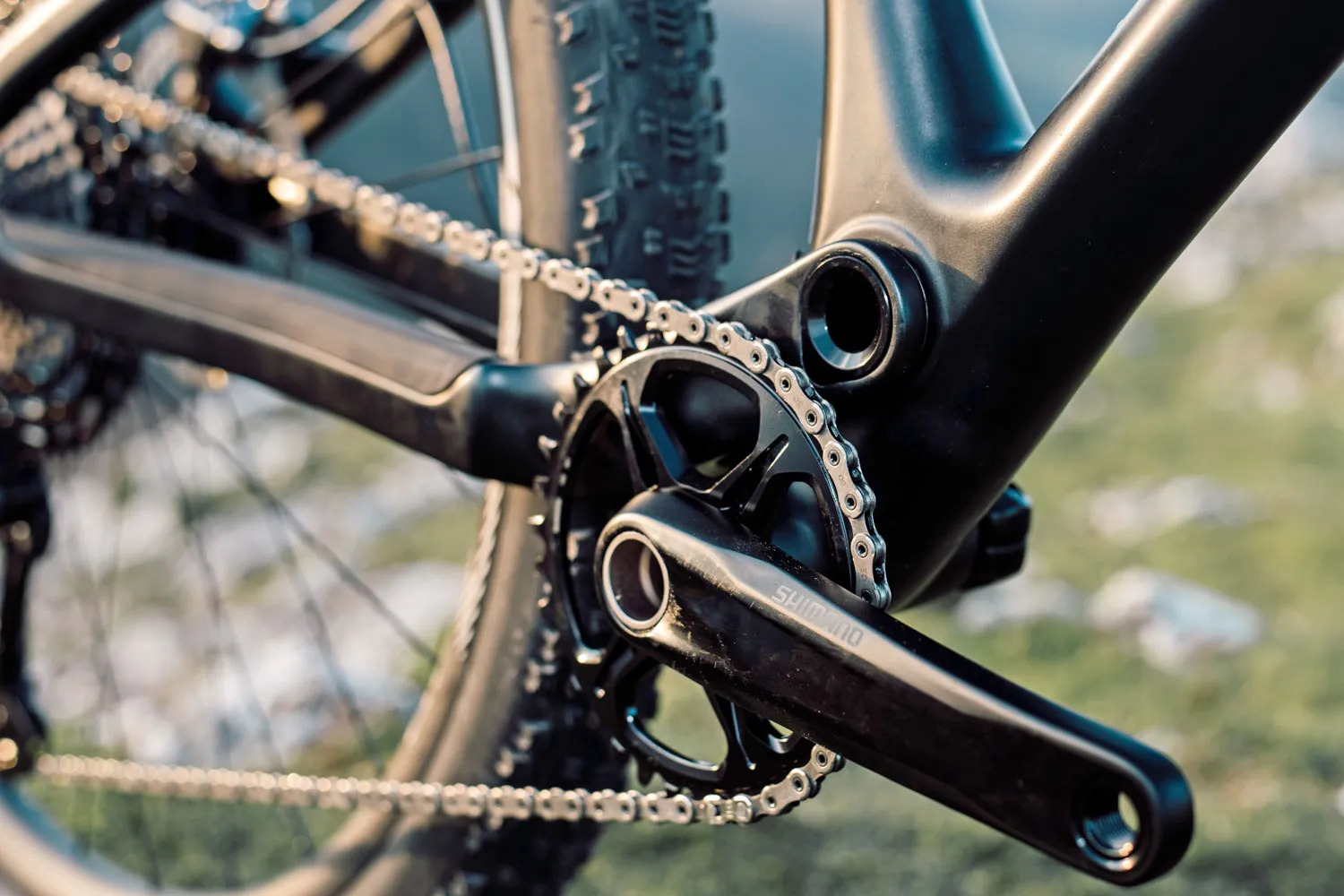The Spanish bike brand has redesigned its Lynx frame for more stiffness and better geometry.
If you do not have a downcountry bike as a major bike company, your product portfolio is lacking cachet.
BH has addressed this with an update of its Lynx dual-suspension carbon race bike. The Spanish brand has now added an Evo designation to the Lynx range and that heralds some small but significant upgrades.
The core numbers have not changed much, with BH’s Lynx Evo available in either the dedicated 100mm Race suspension configuration, or as a 120mm LT variant.
Both frames have a new rear triangle and overall composite structure, which is 100g lighter than before. Frame weight on the BH Lynx Evo in 100mm trim, is 1950g with a shock.
Read more: these are the best downcountry bikes

Oversized main bearings
Beyond the reduction in mass, there has been a meaningful gain in stiffness. BH claims that its new Lynx Evo framesets are 30% more laterally rigid than their predecessors.
Using the split pivot suspension system and a huge main pivot bearing, BH’s engineers promise a lower maintenance burden and reduced side load bearing wear.
Geometry numbers are not overly daring, with the Lynx Evo sitting at a 68° head angle and its 120mm forked LT sibling, at 67.5°.
Although BH says that it has increased reach numbers by between 15-20mm on all sizes, the bikes still have quite compact front centre dimensions. The Lynx Evo Race has 456mm of reach and an LT only 450mm.

An unusual stem
The new Lynx Evo range certainly looks the business, as one would expect from a Spanish designed dual-suspension race bike, especially with it fade colourways. The BH customisation programme, which offers a staggering array of primary, secondary and frame detail colourways.
It also has a very clever new stem, which does not require a conventional top cap. A combination of washers and binding ramps allow the two traditional stem screws to keep everything held together.
This has allowed BH to offer its own stowable bike tool inside the steerer, containing seven essential bits. These include a range of Allen keys (2.5mm, 3mm, 4mm, 5mm and 6mm), a 25 Torx bit and a chain tool.




